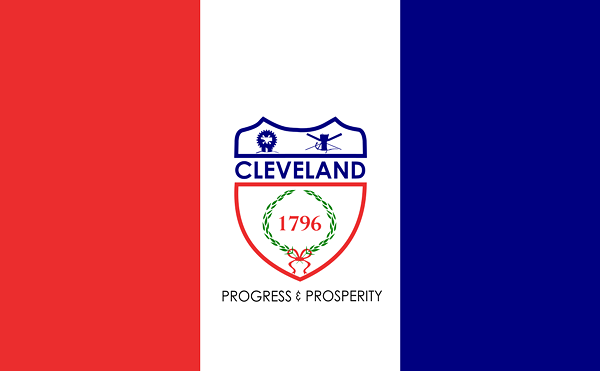Dan Savage is a nationally syndicated sex columnist you've been reading in the back few pages of this humble rag for years. He's also a well-known LGBT rights activist who helped create the massively popular It Gets Better project. Savage will be coming to town as part of the free-to-attend "writers & readers" series at the Cleveland Public Library on Saturday, June 21. He'll be speaking at 2 p.m., and seating is first come, first serve, so get there early.
You started the It Gets Better Project nearly four years ago. How do you assess where it is now compared to where you thought it could be?
When we first started it, the explicitly stated goal, our hope was that we'd get 100 videos. I was going to talk about it in my column, talk about it on the podcast, and I wanted to have this resource where I could direct LGBT kids to get in touch with me if they need some perspective on their futures, what's possible, because a lot of us are bullied and our adult lives are so rewarding and so much better than we could have imagined, and a lot of LGBT kids who are currently being bullied need to know that. They need that adult perspective. So I thought if we could get 100 videos, we'd have this resource. Well, we got 100 videos, I think, in the first day. There are now a quarter of a million videos for the It Gets Better project, from like 14 other countries. We couldn't have predicted and we couldn't anticipate it would be this huge. The real measure of the project's success — my goal was to save a life. We started the project in response to just one suicide — Billy Lucas's suicide in Greensburg, Indiana — and we didn't say, "Let's go have the biggest YouTube channel ever." That wasn't our goal. Our goal was to reach LGBT kids who may be vulnerable and in despair, and we know that goal has been achieved, we've heard from hundreds and hundreds of LGBT kids that the videos made a difference for. I think for some people who aren't queer, they don't understand how crucial this could be. But if you think for a second about a kid who's bullied at school because of his race or her faith, they go home to parents of the same race or faith, parents they can turn to for help. Queer kids go home, almost invariably, to straight parents who aren't living proof they can get through it. And really, tragically, so many queer kids go home to parents who are also bullying them, parents they can't turn to for love and support because they're homophobic or transphobic.
Is there a particular video that makes you think, "This is what I was hoping for"?
The videos that matter most to me and are most important are not the politicians, not the celebrities, not the corporations — those are great, sometimes kids need to know that for peers picking on them that "Lady Gaga's on my side" and "These people are in my camp" — but the videos that are most important are the ones by average, everyday ordinary people that nobody's ever heard of. They get tons of response in the comments, you often seeing the people who made the videos replying in the comments section to the kids who watched them and were touched by them. The video that I always think of is Gabrielle Rivera's video, and what I loved about it is she just looks at the camera and says she's a Latina lesbian living in the Bronx, I'm brown and I'm poor, and I've seen some videos by rich people, these white people telling you it gets better. What Gabrielle goes on to say is, "You know what, it doesn't get better, what happens is you get stronger." Which is Latina-lesbian-poet-Bronx for "it gets better." It shifts the credit for survival to the survivor. Almost all of the videos are people talking about what they did to make it better. What I loved about Gabrielle's video — that it doesn't get better, you get stronger — is that it looks at someone and says you're going to be transformed and you're going to be the better for it, and I just think that was so beautiful.
You've been writing your Savage Love columns for more than 20 years now and Scene readers read it every week in the back of the mag. What are the elements of a good question that'll get you to respond?
Oh my god — no one wants to see the way the sausage is made — but it really helps to write to me on the day I'm sitting down to write a column (laughs). If the letter arrives on the day I turned the column in or the next day, the odds of that letter getting into the column are slim (laughs).
Have you noticed a trend in the types of questions you've gotten from the early 1990s to now?
Absolutely. The one thing that really changed everything was the Internet. In the early '90s, half the mail and half the column were referrals and definitions. People would write me and say, "I live in Cleveland and I want to get into the BDSM scene or the swingers scene and I don't know where to start." And I, because I've been writing this column for years, would have all these newsletters and kind of knew where to look for these groups. You couldn't just Google it, and now you can. And the other one was definitions: What's a butt plug? What's a cock ring? What's reverse cowgirl? I would get those questions all the time from people who've heard about something but didn't have a reference or the Internet. And now butt plugs have a wiki page. It really has changed the job, because those were easy columns to write. What a butt plug is and how to use it? I can write that in my sleep — I think I did write that in my sleep. Every question now tends to be complicated, murky, neither black nor white, situational ethics: this is what I did, this is what they did, this is what happened, who's right, who's wrong, what do I do now? And those are really hard to answer; sometimes I long for the 'what's a butt plug?' question. I have to be wide awake and perfectly sober and I have to be Solomon and cut babies in half and that feels like a high wire act.














